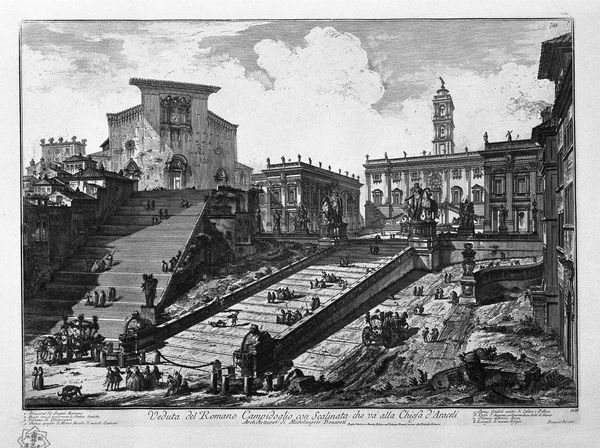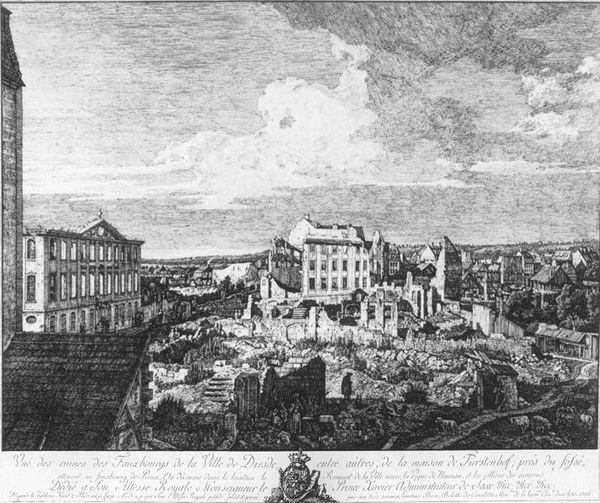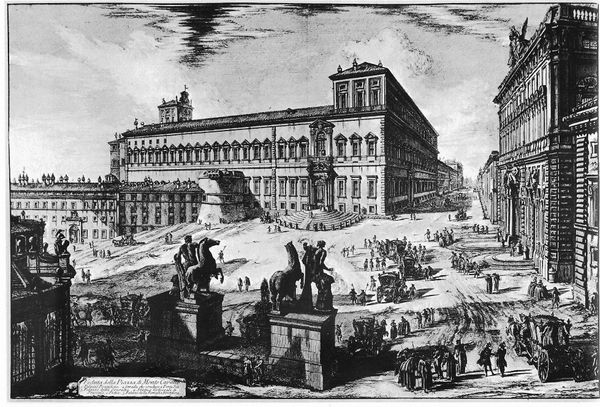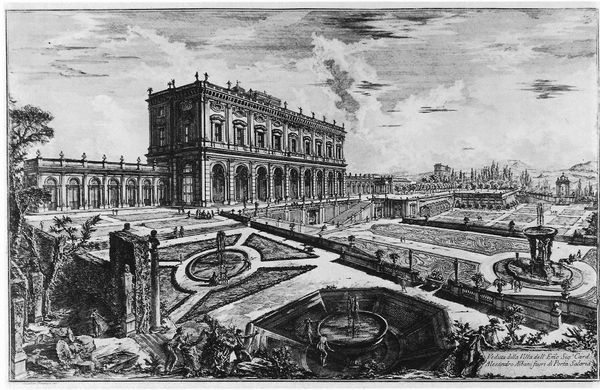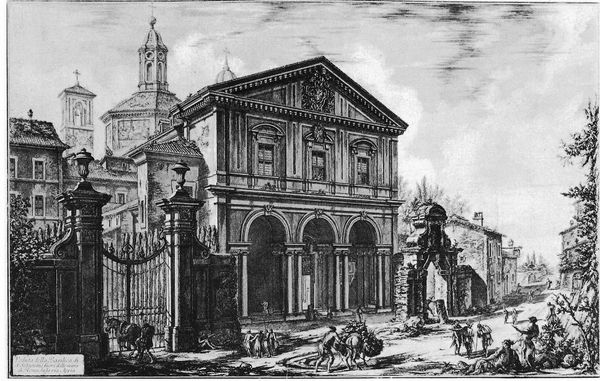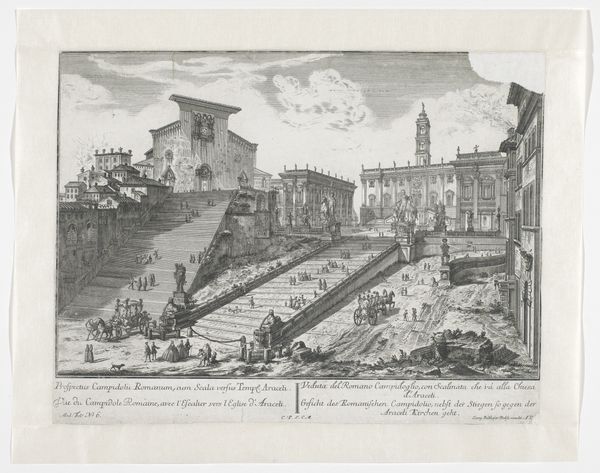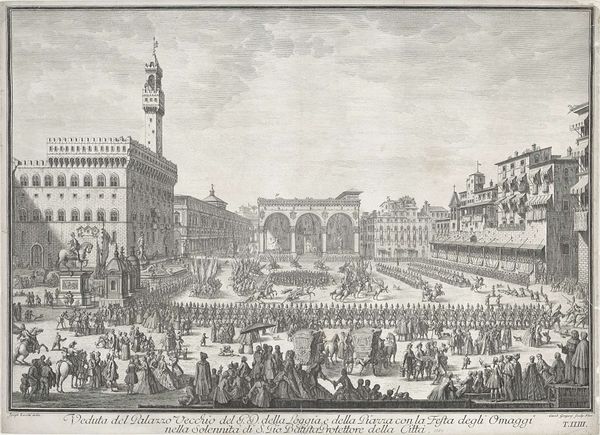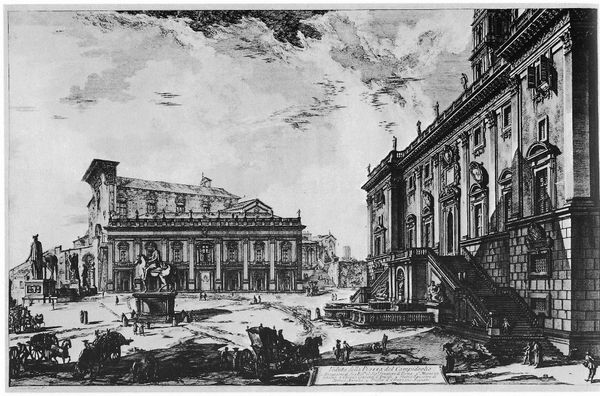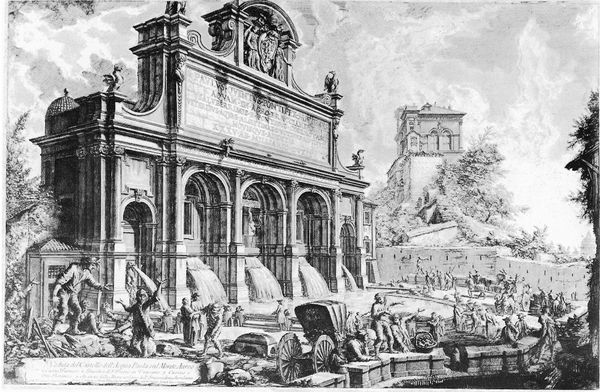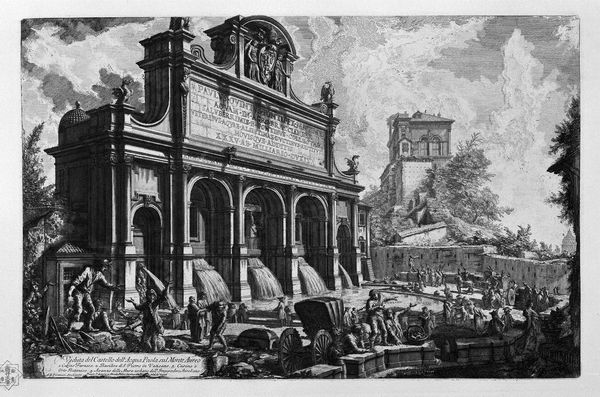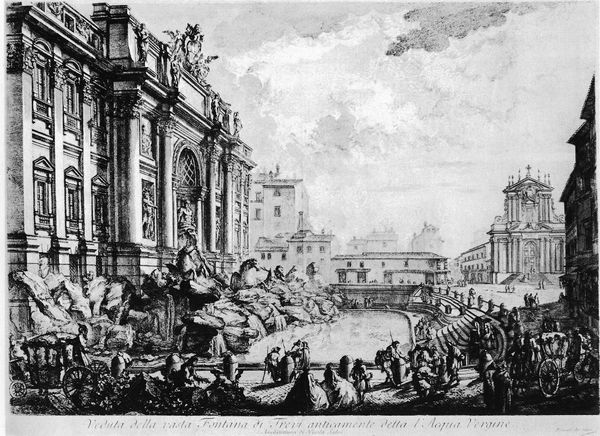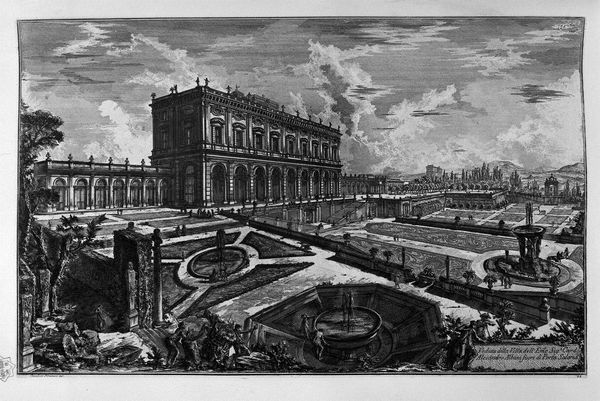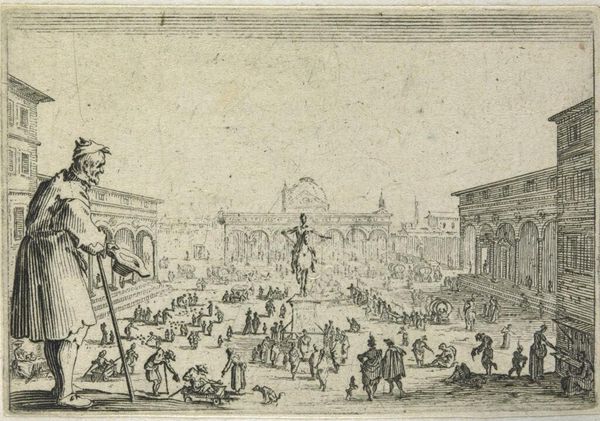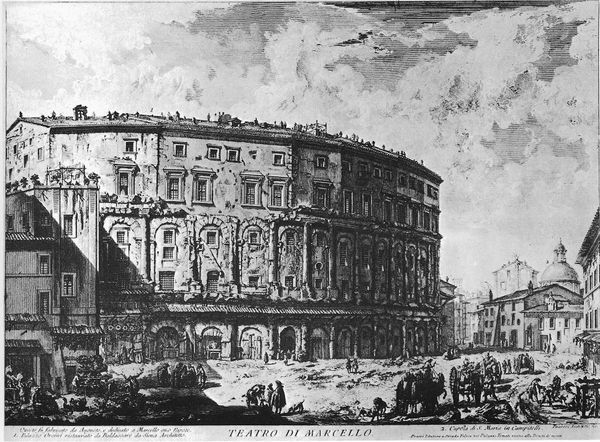
drawing, print, etching, ink, architecture
#
pen and ink
#
architectural sketch
#
drawing
#
baroque
# print
#
pen illustration
#
etching
#
landscape
#
romanesque
#
ink
#
column
#
architecture drawing
#
cityscape
#
architecture
Copyright: Public domain
Editor: What a remarkable etching! There’s a sense of epic scale juxtaposed with incredibly fine detail. Curator: Indeed. What we’re looking at is a print by Giovanni Battista Piranesi, entitled "Vedute di Roma," which translates to "Views of Rome." Editor: Immediately, I’m drawn to the composition; the dynamic perspective and strong diagonals create a powerful visual rhythm, almost a dramatic pull. What do you make of the contrast? Curator: Structurally, Piranesi masterfully uses light and shadow to articulate depth, lending a sense of monumentality. Observe how he uses line weight to define architectural forms, especially in the details of the cornices and sculptures. Each stroke functions to convey the tangible presence of history. Editor: The symbols! Notice the grandeur of the buildings, clearly communicating Roman power and ambition, and their role in shaping urban identity. These aren’t just structures, but the embodiment of collective memory, rendered as living entities within the city's heart. Curator: Iconography aside, look closely at Piranesi’s technique. The hatching and cross-hatching create an almost palpable texture. He transforms flat space into an illusion, drawing attention to how we experience pictorial space itself. Editor: But consider what the Roman ruins *mean* to contemporary society— the visual symbols and ruins remind people of legacy, and history in our culture. What a weight those crumbling walls bear, shaping cultural values. Curator: True, but observe the almost dizzying effect of the steep staircase. He plays with visual distortion—altering conventional perspectives to provoke a physical sensation, using design to disrupt comfortable modes of spectatorship. Editor: He uses architectural language as a vessel to convey potent symbolism about cultural inheritance, memory, and our human capacity for architectural wonder. Curator: Ultimately, "Vedute di Roma" stands as a testament to Piranesi's capacity to render form significant, showcasing not just Rome, but a dialogue between aesthetics, perspective, and history itself. Editor: A potent reflection, linking material structure to our very being. Thanks to that symbiosis, our present and past interweave through visual culture.
Comments
No comments
Be the first to comment and join the conversation on the ultimate creative platform.
